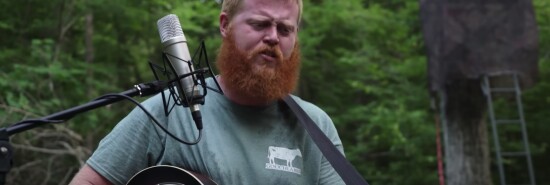
Stop ruining Oliver Anthony’s ‘Rich Men North of Richmond’
Harry Khachatrian
Video Embed
Singer-songwriter Oliver Anthony became an overnight country-folk superstar earlier this month when his independently released single, “Rich Men North of Richmond,” skyrocketed to No. 1 on the Billboard Hot 100.
With its sparse arrangement, featuring only Anthony’s raspy vocals and twangy Bobtail guitar, and such timely and poignant lyrics as, “It’s a damn shame / What the world’s gotten to / For people like me / And people like you,” Anthony quickly established himself as a voice for a growing class of people who feel neglected by their elected representatives and the political system more broadly.
IT’S TIME FOR SEVERAL REPUBLICANS TO QUIT THE PRESIDENTIAL RACE
It wasn’t long before Anthony’s meteoric rise to the spotlight that politicians began to affiliate themselves with his message, one that struck a chord far deeper than their manicured speeches. During the first Republican presidential primary debate in Wisconsin, Fox News played an excerpt of the viral hit. In the selected portion, Anthony begrudges the burden of taxes and lambastes the “rich men north of Richmond,” a pointed jab at the powerful and aloof elites of Washington, D.C., who, in his lyrics, “just wanna have total control,” suggesting a critique of President Joe Biden’s Democratic policies.
In response, the songwriter demurred, disassociating himself from the political pugilism. “That song has nothing to do with Joe Biden; it’s a lot bigger than Joe Biden,” Anthony remarked. “That song was written about the people on that stage and a lot more, not just them.”
At their core, the most iconic protest songs are more than just catchy lyrics set against the backdrop of contemporary headlines; they encapsulate the zeitgeist, capturing the essence of a moment or an era. Creations such as Creedence Clearwater Revival’s “Fortunate Son” or Bob Dylan’s “Blowin’ in the Wind” stand as testaments to this. These anthems, while inspired by their times, didn’t merely regurgitate current events but delved deeper, channeling broader societal sentiments, frustrations, and hopes. Such songs resonate not because they parrot political ideologies or endorse one party over another but because they tap into underlying societal emotions, transcending ephemeral political climates.
The power of the best protest songs lies not in their being paeans to specific political movements. Instead, their resonance stems from their incisive critiques of broader issues that underpin the political system. These aren’t merely the headline-grabbing issues that dominate political debates or election seasons. They dig deeper, challenging systems and structures, rather than suggesting that a simple change of the guard or voting in the perceived “correct party” can offer a panacea.
Bruce Springsteen’s “Born in the USA” is another such example. Released in 1984, the song captures the raw and palpable anguish of disillusioned veterans returning from war, only to be met with unemployment and societal indifference. It’s a commentary not on a single administration’s policies but on a systemic failure to honor and support those who served. It was for this reason that Springsteen suggested President Ronald Reagan take a closer listen to his lyrics when Reagan referenced the power ballad in a campaign speech.
Politicians who genuinely connect with messages such as Oliver Anthony’s would serve their constituents more authentically by embodying these sentiments in their policies rather than parading them as catchy campaign slogans. If a lawmaker truly feels the weight of Anthony’s lament against the inflationary assault on the dollar, the most appropriate response would be through advocating meaningful policy change, not just nodding in superficial agreement.
This feigned sentiment isn’t new. Musical legends, such as Bob Dylan, have historically resisted being pigeonholed or commandeered for political ends. Dylan, in particular, consistently eschewed the label of being the “voice of a generation.” In a 1965 press conference in San Francisco, when posed with the question of whether he saw himself as a singer or a poet, he wryly responded, “Oh, I think of myself more as a song and dance man.” Artists and their expressions aren’t meant to be co-opted but rather to inspire genuine introspection and change.
CLICK HERE TO READ MORE FROM THE WASHINGTON EXAMINER
Harry Khachatrian (@Harry1T6) is a film critic for the Washington Examiner’s Beltway Confidential blog and a computer engineer in Toronto, pursuing his MBA.
